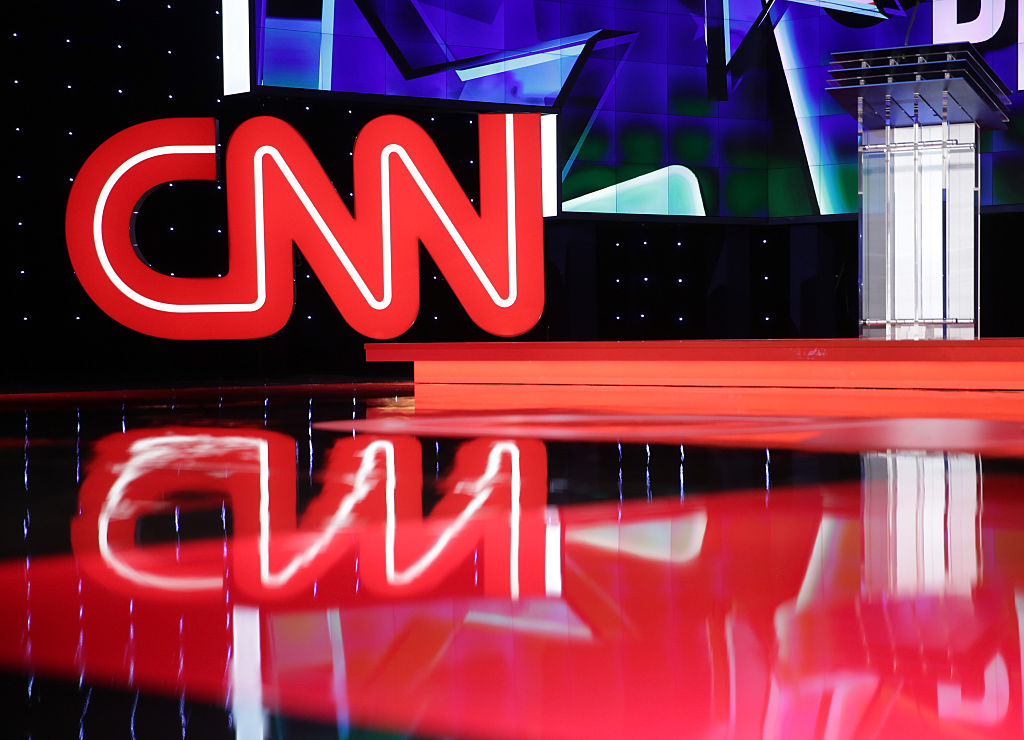If you’re the kind of person who’s into schadenfreude, the slow-motion self-immolation of Chris Cuomo has been quite the spectacle.
It couldn’t have happened to a better person, after all — and it wasn’t just Cuomo who got caught in the conflagration.
His network, CNN, doggedly refused to take any action after a) he invited his brother Andrew Cuomo on his show scores of times during the coronavirus pandemic, essentially acting as a booster for the brother he once called the “love gov,” b) he didn’t say anything meaningful after evidence of a nursing home death toll cover-up and sexual misconduct against the other Cuomo began to mount and c) it came out he advised his brother during his sexual misconduct PR blitz.
Any of those should have been fireable — and yet, they got lost in the mix every time. Even when Chris Cuomo was hit with a sexual harassment allegation, the network stuck with him. (It’s worth noting we’ve been covering all of this and trying to keep CNN — and the rest of the liberal media –honest. You can help support our mission by subscribing.)
Even after the New York attorney general’s office released text messages that showed he was far more stuck in with his brother’s crisis management team than he’d let on, CNN only announced an “indefinite suspension.” Brian Stelter, host of “Reliable Sources,” even said the day after the suspension on Tuesday that Cuomo was merely “on the bench for now” and that it was “possible he’ll be back in January.”
Some reliable source. On Saturday evening, Cuomo was fired. Stelter, who just days before said the host might just be in for an extended Christmas break, was on the network that night telling viewers “there were so many headaches here, so many journalistic fouls that management decided it was untenable for him to remain with the company.”
STELTER at 6 pm Saturday on CNN being dragged kicking and screaming on Chris Cuomo: “Ultimately, there were so many headaches here, so many journalistic fouls that management decided it was untenable for him to remain with the company.” pic.twitter.com/hReUWQKthB
— Tim Graham (@TimJGraham) December 5, 2021
A bit later, he went on to say it was “a matter of journalistic ethics and standards, about what CNN could tolerate over time.”
STELTER in the 7 pm hour, slips into honesty, saying the Chris Cuomo Problem was an ethical matter, but maybe about how much embarrassment CNN could tolerate on an installment plan: “This is a matter of journalistic ethics and standards, about what CNN could tolerate over time.” pic.twitter.com/avBOKlZ2dp
— Tim Graham (@TimJGraham) December 5, 2021
Amazingly, he managed to get it wrong both times; Cuomo was terminated after new allegations of sexual harassment surfaced against him. So, on Sunday’s edition of “Reliable Sources,” he asked a question to a panel of “non-CNN voices” that should have been rhetorical: “Ultimately, this is about trust in media. Has CNN lost trust as a result of this?”
The “non-CNN voice” he was asking about this was David Zurawik, currently a professor of media studies at Goucher College and previously with the Baltimore Sun. He seemed unwilling to say the obvious, telling Stelter he didn’t know whether it had cost the network trust. His comments, at least, told a different story.
“It is one of the things that makes people wary — not wary, they don’t trust the press,” Zurawik said. “Because they think it’s elites dealing with elites taking care of elites.”
He added that even though the media lionizes itself as scrutineers of the powerful, “we watch some people harder than other people.”
[firefly_embed]
[/firefly_embed]
“We’ve really lost sense of media ethics,” Zurawik continued.
“In our profession, especially in the last few years, you have to ask yourself first — and this is the mistake Chris Cuomo made, and in some sense, I think CNN made this same mistake in not forcing him to ask it — who do you work for? Who do you serve? Obviously, you serve and work for your employer or you don’t get a check. But beyond that, who are you talking to? You should be serving the public. That oftentimes puts you at odds with people in power.”
It’s worth noting a few things here.
In terms of serving the public, it’s not just Chris Cuomo’s feet that should be held to the fire here. The host wasn’t just tolerated but indulged during the first days of the pandemic by executives who loved the headlines and the ratings. Even after it became known he’d helped in some way with his brother’s PR response to the sexual misconduct charges, all that happened was a public rebuke of sorts. It wasn’t even a slap on the wrist.
When he was fired, it wasn’t even for the messages released last week which showed he was way more dug in with his brother’s scandal than originally thought, which meant he’d lied not only to network executives but to viewers. No, it was because a sexual harassment allegation had emerged — the second against Cuomo this year.
CNN, when it fired the host, said it had to do with “additional information,” refusing to reveal what it was. It only took hours for The New York Times to break the story, making CNN look worse for not disclosing it in the first place. Does Stelter even need to ask whether this has cost them trust?
In fact, his panel discussion ended up costing the network trust, too. As Fox News pointed out, the “non-CNN voices” Stelter invited on included Sarah Fischer of Axios … who had previously worked at CNN. If our “reliable source” can’t figure out if America has lost confidence in his network, he sure as heck can’t figure out why it has, either.
This article appeared originally on The Western Journal.

























 Continue with Google
Continue with Google